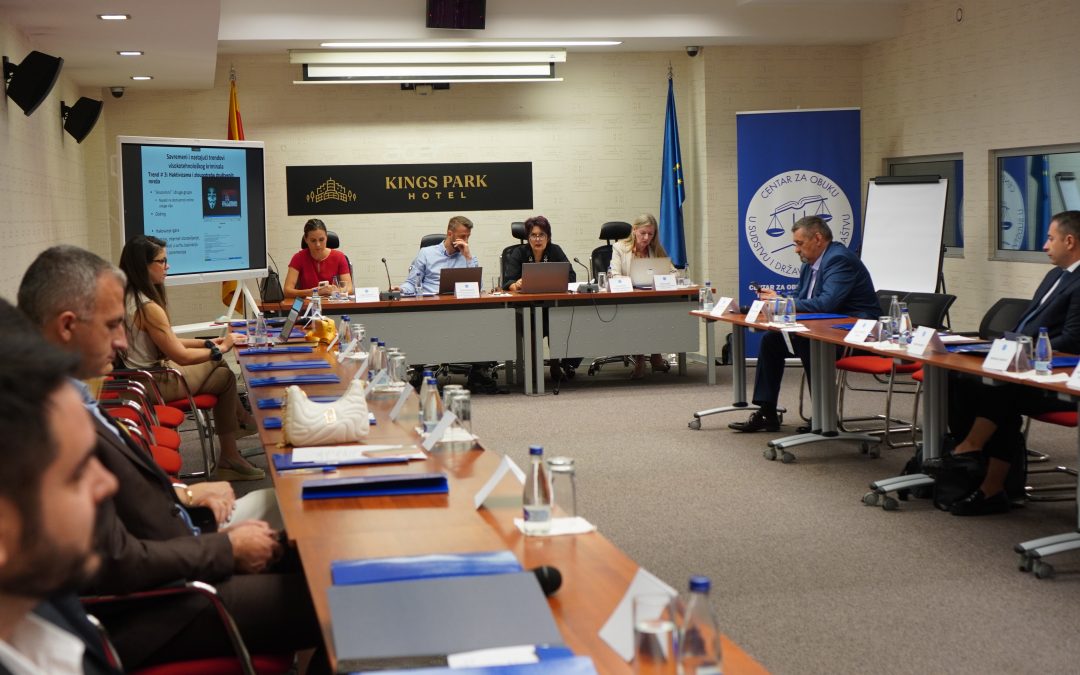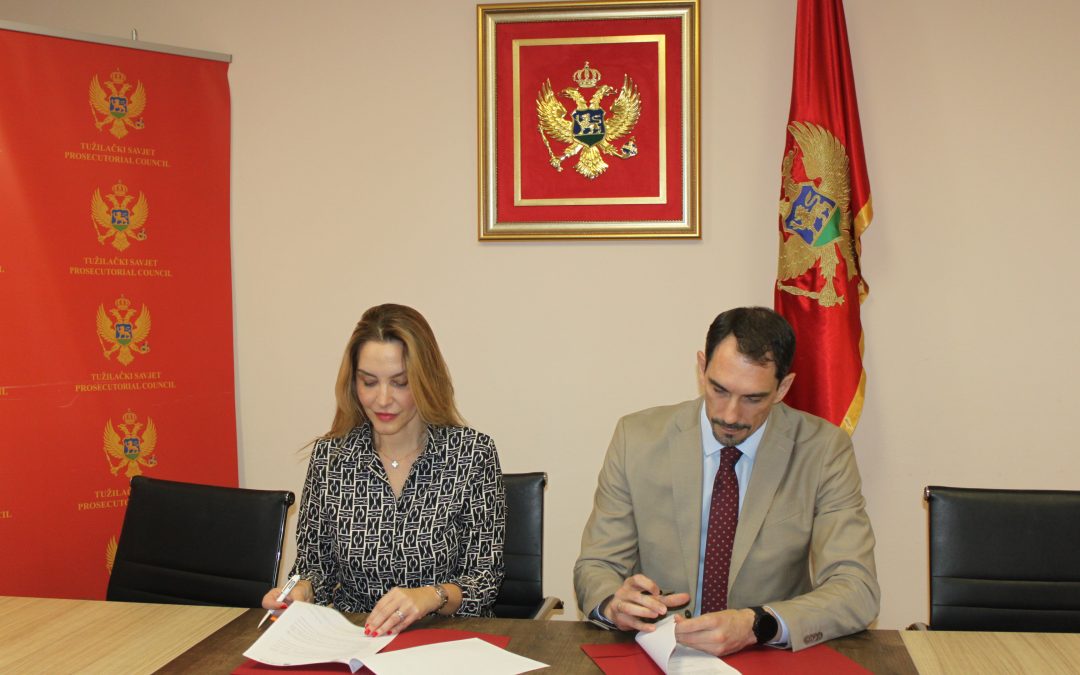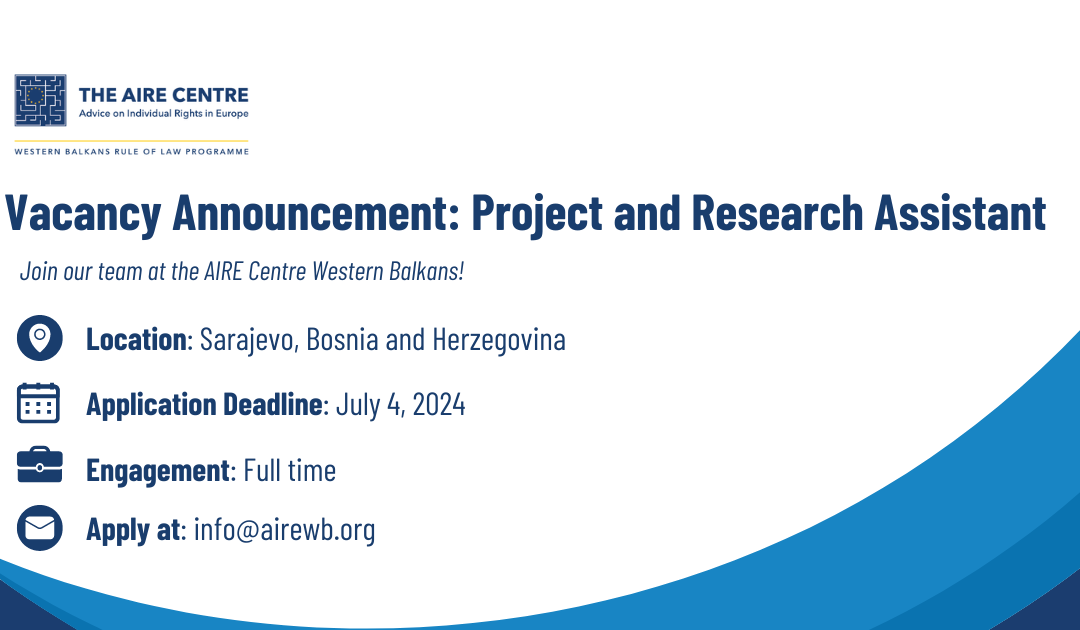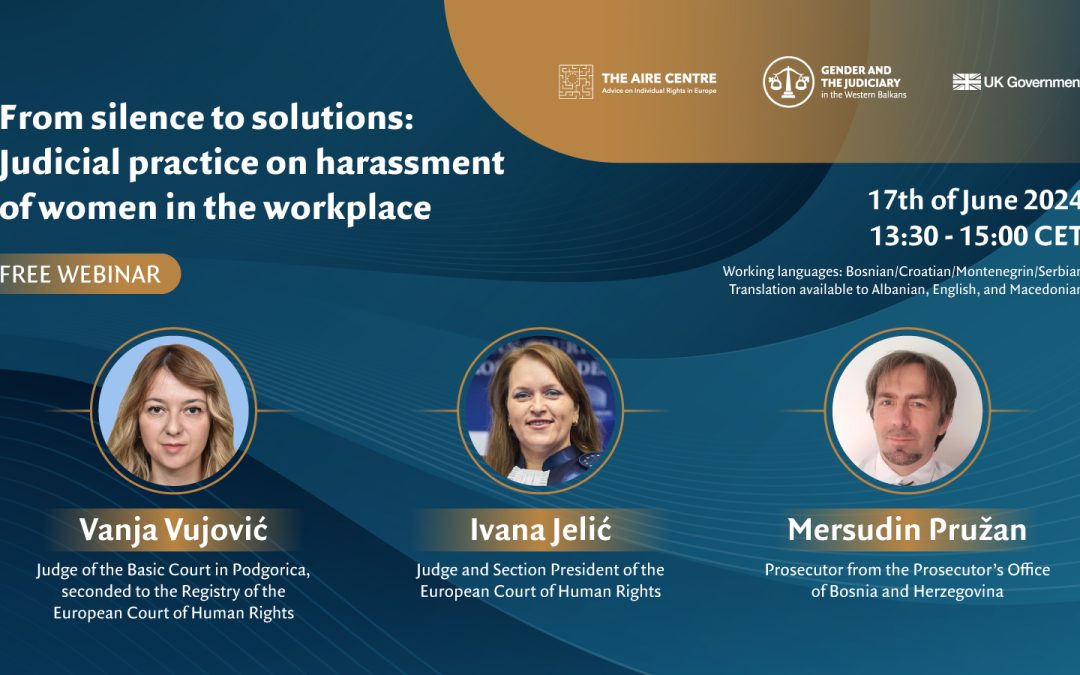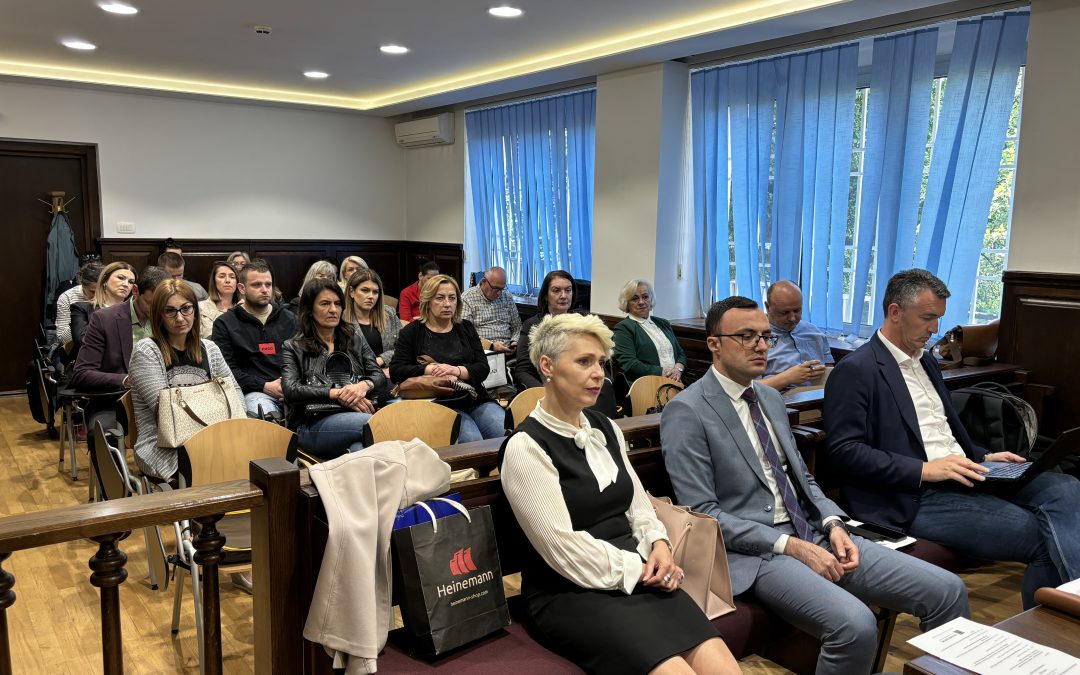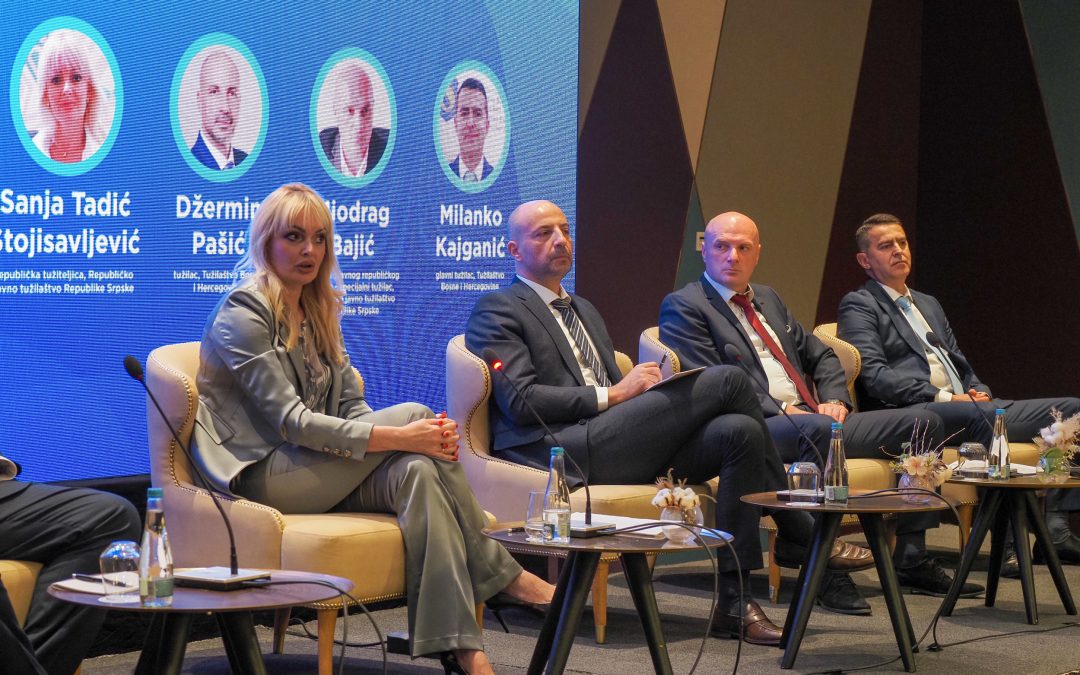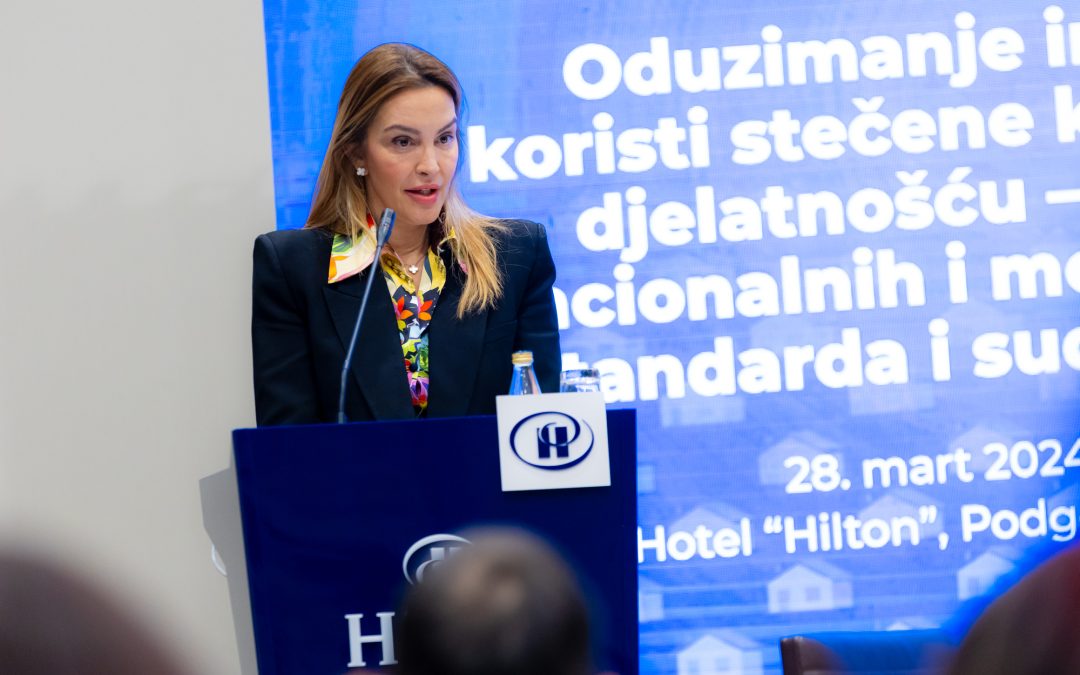As public concern over gender-based violence (GBV) continues to grow with each new reported case, judicial transparency in its efforts to effectively prosecute and punish perpetrators seems to be more important than ever. At a regional conference held in Sarajevo and organised by the centres for judicial and prosecutorial training of the Federation of Bosnia and Herzegovina and Republika Srpska, members of the Gender Champions in the Judiciary Network (GCJ Network), Amela Mahić Samardžić, Lejla Konjić Dragović, Sandra Budiša, and Boris Cvitanović, came together to shed light on the significance of an independent and impartial judiciary in prosecuting GBV cases.
Amela Mahić Samardžić, a judge of the Supreme Court of FBiH and the moderator of the panel on the topic of “Independent and impartial judicial response in cases of GBV”, underscored the intricate nature of GBV, emphasising the necessity of dissecting the various dimensions of the gendered nature of these crimes, and the way in which these crimes manifest in society, ranging from harassment to psychological and physical violence, and femicide as its most extreme form.
“It is undeniable that gender-based violence is a violation of human rights and has the characteristics of discrimination. Therefore, the role of the judicial system, i.e., judges and prosecutors, is of paramount importance. They must clearly express their commitment to addressing this issue seriously and, through their actions, whether prosecutorial or judicial, demonstrate their knowledge and capacity to combat all forms of violence and ensure the adequate sanctioning of any unwanted behaviour,” said Judge Mahić Samardžić.
Bosnia and Herzegovina (BiH) has a robust domestic legal framework to address GBV. However, Judge Samardžić reminded the audience that the country is also a signatory to international conventions ensuring that it has necessary tools to effectively combat GBV. Boris Cvitanović, a judge at the Basic Court in Travnik, noted that there is still work to be done in terms of harmonising domestic legislation with international standards, expressing his concern regarding the progress made over the years.
“Analysing the compliance of the legislation in BiH with the Istanbul Convention, as the first legally binding international instrument in the fight against domestic violence and violence against women, I found that our criminal legislation is largely not harmonised with the Convention itself, even though almost 10 years have passed since BiH ratified this Convention”, said Judge Cvitanović.
“So, the questions arise: Will we continue to be silent observers of this wave of violence against women that is unfolding before our eyes? This violence, which has become a trend in BiH? How many more cases of femicide? How many more cases of violence against women must happen, to fully implement the Convention in our legislation?”, explained Cvitanović.
This sentiment was further echoed by Sandra Budiša, Judge of Commercial District Court in Banja Luka.
“In terms of the legislative framework in Bosnia and Herzegovina concerning cases of gender-based violence, there is a need for further improvements, particularly in harmonising the criminal legislation of the Federation of Bosnia and Herzegovina with the Istanbul Convention. Notably, Republika Srpska has already aligned its legislation with the Istanbul Convention”, said Judge Budiša.
Lejla Konjić Dragović, a judge of the Court of Bosnia and Herzegovina, shed light on the most extreme form of GBV – femicide. She unveiled a harsh reality, revealing the existence of deeply ingrained cultural and sociological prejudices in Bosnian society. Femicide, she explained, is an act of violence specifically targeting women because of their gender, and it is intrinsically linked to societal gender roles, inequalities, and stereotypes. “There is still a significant lack of understanding of femicide, not only within law enforcement, the judiciary, and the media but also among the general population”, explained Judge Konjić Dragović.
“The independence and impartiality of the judiciary play a crucial role in improving the response to cases of GBV. In addition, it is necessary to simultaneously work on the prevention of femicide, as well as on the education of citizens themselves, who can report the violence they witness, officials to whom witnesses or victims turn to on this occasion, as well as judicial actors. The awareness of judges and prosecutors is especially important, as they must act without prejudice towards women and must work on eradicating gender stereotypes”, explained Judge Konjić Dragović.
“Precisely because of this, sensitising and constantly educating the society as a whole, and especially judicial actors, in the field of gender equality and GBV can contribute to the effective prevention of any type of violence, be it physical, psychological, sexual, economic, or social”, said Mahić Samardžić.
The Gender Champions in the Judiciary Network, operating under the auspices of the AIRE Center’s Western Balkans Program, provides a unique platform for judges across the Western Balkans to enhance their knowledge, exchange experiences, and collectively strive for the fair and just treatment of GBV cases. This Network, Judge Budiša noted, is not only the first of its kind in the Western Balkans but also a pioneering Network in the wider European context.
“It is of utmost importance to familiarise judicial authorities with the initiatives of the Network. This Network is the sole one of its kind not only in the region but also in Europe,” said Judge Budiša.
“It is a great honour for me to be a part of this Network. All the countries of the Western Balkans encounter the same difficulties and obstacles, and so only by joint and continuous awareness raising can we make positive changes in the area of gender-based violence”, said Judge Cvitanović.
“GCJ Network plays an impressive role in strengthening the independent and impartial action of the holders of judicial functions in cases of GBV. Through this Network, judges of the Western Balkans have the opportunity to improve their knowledge and exchange experiences, all with the aim of adequately dealing with these cases”, said Konjić Dragović.





